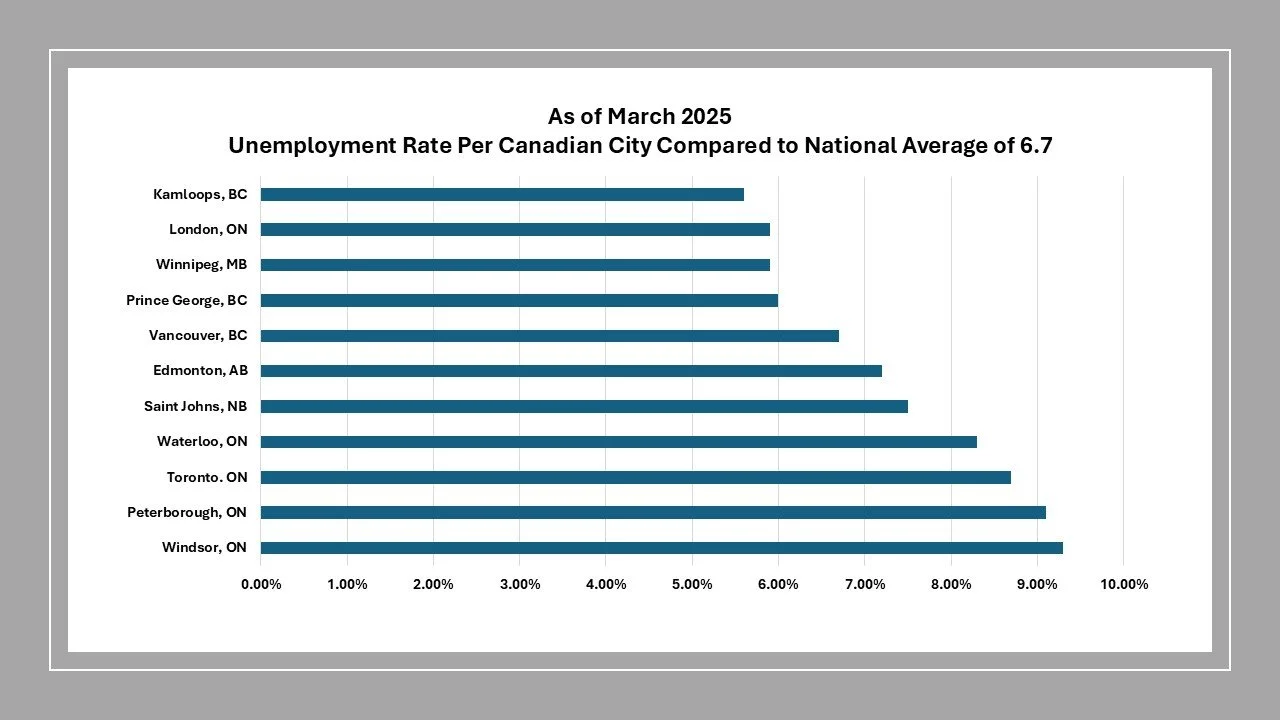Canada Study Destinations for International Students: Toronto, Vancouver or Where?
Toronto and Vancouver are both popular cities for international students, but they might not always be the best choices for everyone. Here are a few reasons why:
1. High Cost of Living:
Toronto and Vancouver are two of the most expensive cities in Canada. The cost of housing, groceries, transportation, and entertainment can be significantly higher than in other cities, making it harder for international students to manage their finances. A 1-bedroom apartment in Vancouver can rent at around $2300 CAD per month whereas in Prince George, home to UNBC, rent is around $1400 CAD per month.
Rent prices, especially in the downtown areas, can be prohibitively high, and it may be difficult to find affordable student housing.
2. Competitive Job Market:
These cities are home to large populations and many international students, making the job market highly competitive. Securing part-time jobs or internships that offer relevant work experience can be difficult, especially when students need to balance their academic workload. Toronto’s unemployment rate as of March 2025 is 8.7% whereas Vancouver’s rate is 6.7% on par with the national average. So if you are looking for the large city experience, Vancouver can still be a good option, but international students may find that cities like Prince George, Saint Johns, Edmonton or Winnipeg are also good choices for employment opportunities.
While both cities have a range of industries, the competition for jobs can be intense, and many students struggle to find employment that aligns with their field of study.
3. High Demand for Housing:
As major metropolitan areas, both Toronto and Vancouver face high demand for housing. This often results in limited availability, particularly for student-friendly accommodation.
Students may have to live farther from campus, which could lead to longer commutes, additional transportation costs, and time spent traveling instead of studying.
4. Weather and Climate:
Vancouver has a mild climate but experiences a lot of rain during the winter months, which may not be ideal for students from sunnier or drier countries. Sunnier locations are Kamloops or Edmonton (with over 300 sunny days per year).
Toronto experiences colder winters with snow, which could be a shock to students who are not accustomed to harsh winter conditions. The long, cold winters can sometimes impact mood and mental well-being. If you want to study in Ontario, Windsor is warmer with 7 months of short-sleeve weather.
5. Diverse but Crowded:
Both cities are incredibly diverse, but that diversity can sometimes feel overwhelming or difficult to navigate for some students, particularly those who are adjusting to life in a new country.
Toronto, for example, has a huge international student population, meaning that while you may have access to a vibrant cultural scene, you might not get as much of a close-knit community feel compared to smaller cities. Diversity is in every Canadian city so places like Windsor or Edmonton might be better options.
6. Cost of Education:
While this is not exclusive to Toronto and Vancouver, the cost of tuition can be very high for international students, especially in larger cities where institutions often charge higher rates to international students compared to domestic students. Some of the cheapest and reputable institutions are Thompson Rivers University (Kamloops, BC), UNB (Saint Johns & Fredericton, NB), UAlberta, NAIT and MacEwan University in Edmonton, just to name a few.
7. Overcrowding and Traffic:
Both Toronto and Vancouver are densely populated, and traffic congestion can be a significant issue. This can make commuting more stressful and time-consuming for students who rely on public transport or need to drive to their destinations. It’s easier to commute in cities like London (Western University), Ontario, Waterloo (home to the University of Waterloo & Wilfrid Laurier University), or Edmonton (home to the University of Alberta, MacEwan University & NAIT).
Alternatives:
Cities like Edmonton, Winnipeg, or Windsor might be more affordable, less crowded, and offer a similar level of academic opportunities with a more manageable cost of living. Fredericton, NB, for example, offers relatively lower housing costs and tuition fees while still having access to a bilingual environment and vibrant culture.
In short, while Toronto and Vancouver offer many opportunities, the high living costs, competitive job markets, and large, bustling environments may not make them the best choice for every international student, especially those looking for a more affordable, less stressful experience. The best way to know about Canadian cities and where to study is to talk to the Canadian counsellors at Go 2 Canada Education Services. Call them today and start your journey to Canada.
Photo Courtesy of Vincent Albos at Pexels
